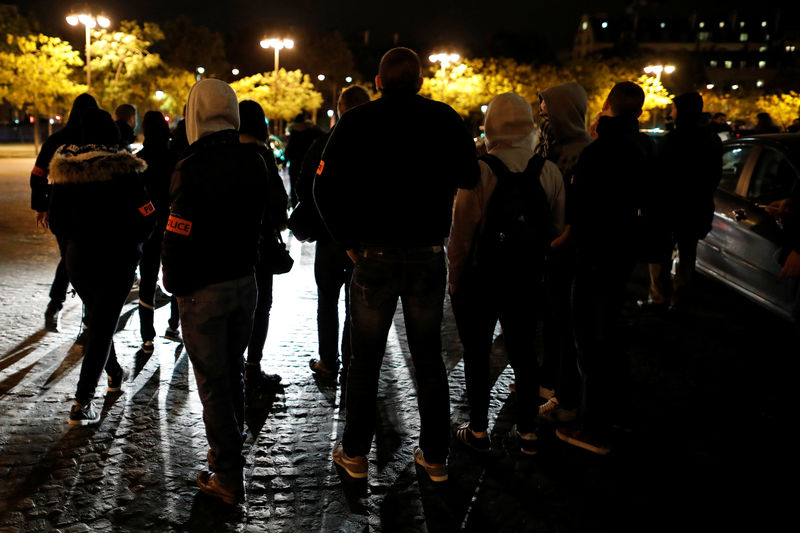PARIS (Reuters) - Hundreds of French police officers protested in Paris and other cities overnight to denounce what they say are insufficient resources to fight mounting lawlessness, defying government demands that they stop the unauthorised demonstrations.
Six months from an election, the protest, now in its third day, has put President Francois Hollande's Socialist government on the defensive at a time when security forces are struggling to combat the threat of further terrorist attack.
Political opponents have seized on the discontent to accuse it of letting violent crime and everyday lawlessness proliferate despite a large police recruitment drive.
"I understand the anger of the police," conservative former president Nicolas Sarkozy said. "I've never seen such an erosion of authority in this country," Sarkozy, who is campaigning to become president again, told Europe 1 radio.
In Paris, hundreds of police officers protested at the Place de la Republique square and the Champs Elysees avenue, scene of similar protests earlier this week that have since spread to other cities.
Other impromptu protests took place overnight in Bordeaux, Nancy and Toulouse.
Thousands of police and soldiers have been deployed to boost security at airports, train stations and schools after a string of militant Islamist attacks in which more than 230 people have died in the past two years.
Interior Minister Bernard Cazeneuve promised police unions at a meeting Wednesday that local policing needs would be reviewed, but highlighted that his government had recruited 9,000 police to fill most of some 12,000 posts axed under Sarkozy's 2007-2012 administration.
While police officers are allowed to protest like anybody else under French law, codes of conduct for law enforcement employees prohibit them from doing so during work hours, or with the use of police equipment such as official cars and uniforms.
The head of national police earlier this week told his staff to respect those rules and announced an inquiry to establish who was flouting them. Protesters have ignored his warnings and similar appeals from the government.
Sarkozy, who was an interior minister himself before he was president, said the problem was not one of resources but soft-touch sentences for known criminals, often juvenile offenders.
The catalyst for the police officers protest movement was an attack earlier this month in which a gang of 10 unidentified assailants petrol-bombed a police patrol car stationed at a crossroads south of Paris notorious for gangland crime.

One of the four police officers inside the car is still in a serious condition in hospital.